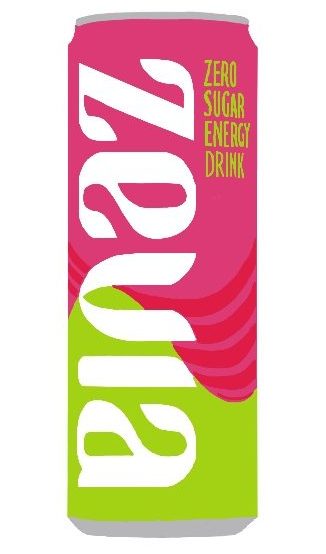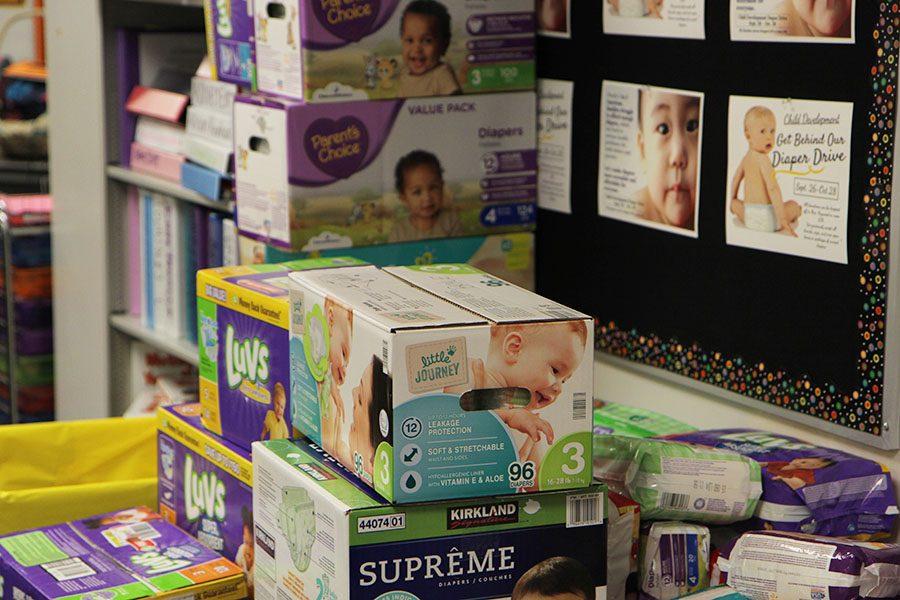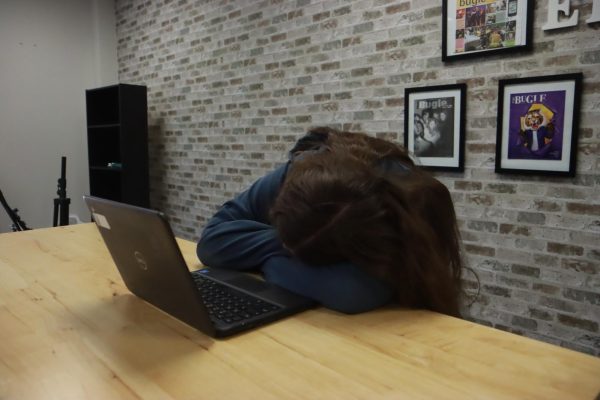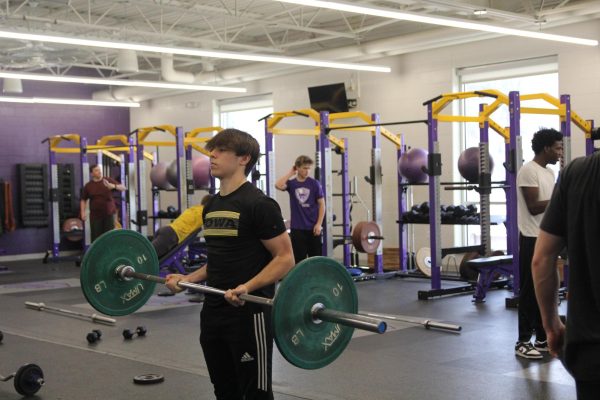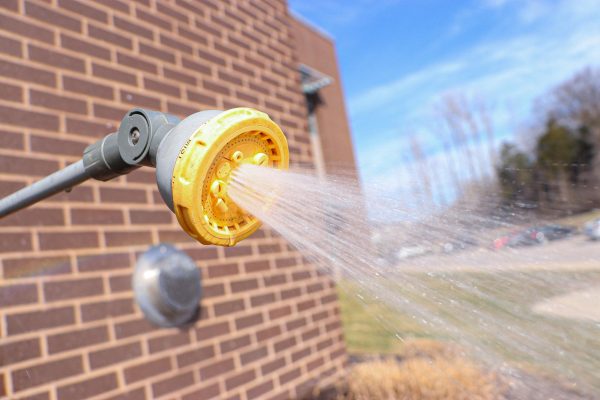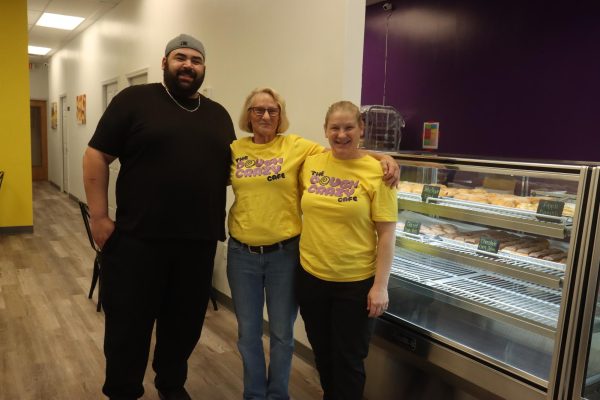One diaper at a time
Cardboard boxes packed with hundreds of diapers sit in room 108, Oct. 18. “Clean diapers are important to growing infants and toddlers,” Jordan Thompson, student organizer, said. “We need to do what we can to help.”
Mountains of cardboard boxes line the wall of the child development room from floor to ceiling. Mrs. Rachel Haywood, child development teacher, is rallying her students for the second annual diaper drive.
One out of three mothers struggle to provide clean diapers for their children, according to the National Diaper Bank.
“It’s a bigger problem than most people realize,” Jordan Thompson, student diaper drive organizer, said. “Clean diapers are essential to a baby’s’ health. Families fortunate enough to afford these basic needs don’t think about it.”
Clean diapers are important to avoid diseases and other dangers. Reusing diapers can put infants at risk for diseases like noroviruses and rotaviruses, according to an article by the Cooperative State Research, Education and Extension Service.
Mrs. Haywood noticed this problem. She decided to take action and organized the first diaper drive in Rockwood in October 2015.
High schools in Rockwood partner with the St. Louis Area Diaper Bank, the only bank in the St. Louis area to provide diapers to families who don’t have the money to buy them.
“I never really thought about how serious it was. If you’re homeless, there’s shelters you can go to. If you don’t have food, there are food banks,” Mrs. Haywood said. “But if you don’t have diapers, there are not a lot of places to go where the diapers aren’t costly and expensive.”
Newborns use about one diaper every two hours they are awake. That’s six diapers a day, over 180 a month for a typical newborn.
The cost for the proper amount of diapers exceeds $80 a month.
Last year, EHS collected the most among all four high schools with 8,150 donations. The district total stood at 12,657 collections, according to Mrs. Haywood.
The FACS classes set their goal to beat last year’s total of over 8,000. Jensen Schoch (12) has collected 1,105 diapers so far.
The drive has a total of 11,579 so far this year.
“It just seems like it’s the right thing to do,” Schoch said. “Those of us that are able to have these luxuries should share them with those who are less fortunate.”
Schoch campaigned in the community with facebook ads. One lady alone gave Schoch 250 diapers in response.
“I just really like helping people,” Schoch said. “It’s great to see students come together for a cause like this.”
The stacks of boxes continue to grow as the drive carries on.
“Our goal for the child development classes is 100 percent participation,” Mrs. Haywood said. “We talk a lot about personal experiences centered around infant loss, which motivates students to give more.”
Most daycares require that the children be sent with their own diapers. If parents cannot meet that requirement, they may be forced to leave work to care for their infant.
Unemployed mothers or fathers add to financial instability and emotional distress in a family.
“The problem may seem minor at first,” Sabo said. “But when you add it all up, it can have a chain reaction effect and create many more issues.”
The lack of diapers creates multiple problems in a family that take a toll on both the children and parents.
“Families are putting babies at risk when they don’t have clean diapers,” Kate Laubacker, student organizer, said. “I almost feel like it’s ignorant for those of us that can help to ignore the opportunity.”
Schoch even encouraged her golf team to donate as many diapers as possible.
Donations can be made to Mrs. Haywood in room 108 through Oct. 28.
“Anyone able to help should help,” Riley Schaefer, student organizer, said. “We all have a part that we should play. Together we can make a much bigger impact than we realize.”
Your donation will support the student journalists of Eureka High School - MO. Your contribution will allow us to purchase equipment and cover our annual website hosting costs.

This is Caleb’s second semester on the EHS-hub staff. He is sports editor. You can follow him @csigmundEHS_hub.
His hobbies include biking, making...



